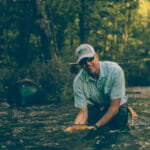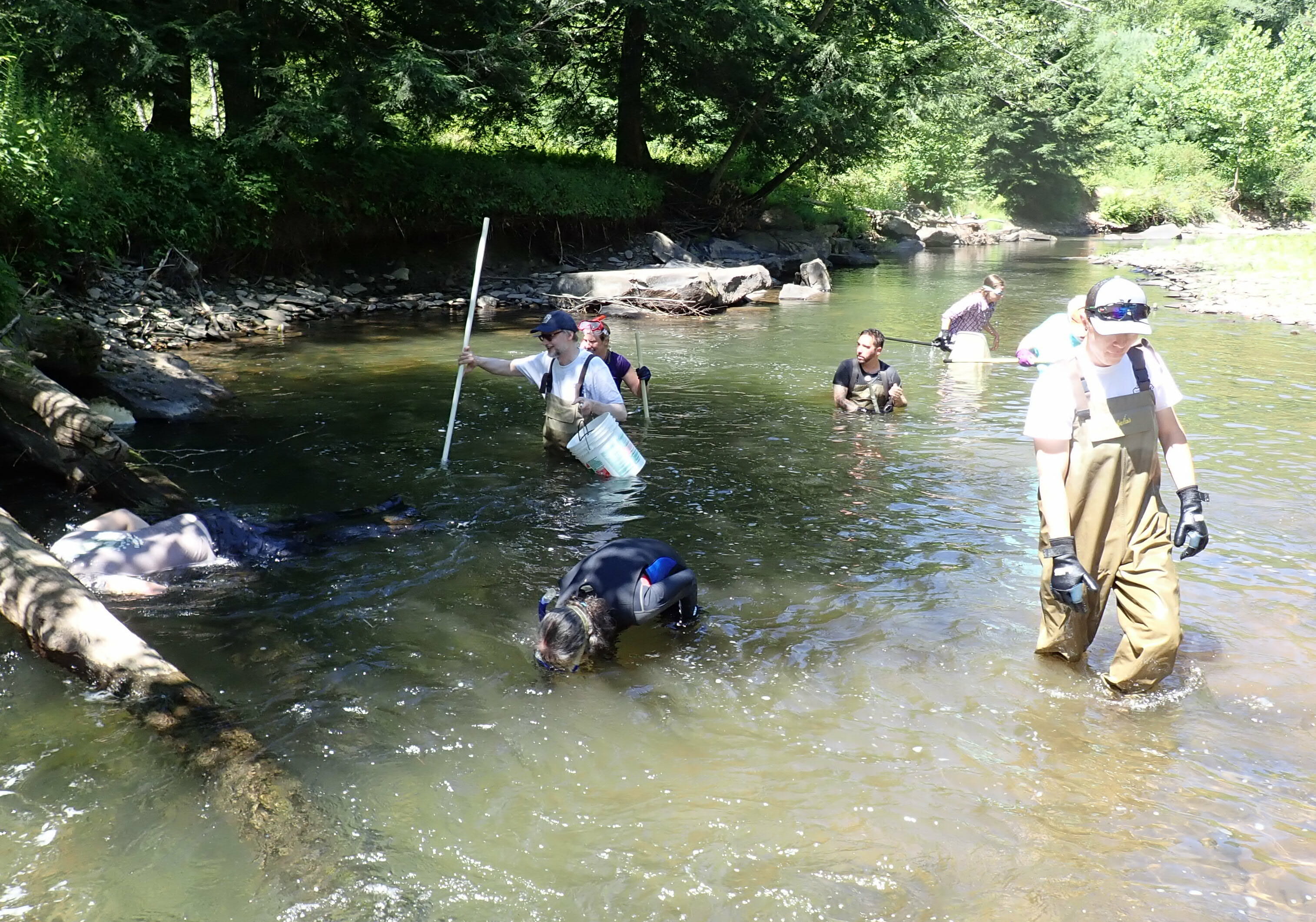By Jake Tomlinson
The past year was a big one for Trout Unlimited’s Pennsylvania Coldwater Habitat Program, which works with a variety of partners and funding sources to protect critical habitat, reconnect degraded waterways, and restore populations of coldwater fisheries.
During the 2018 field season, TU completed more than 8,000 feet of streambank stabilization and habitat improvement, reducing by approximately 37 tons the amount of sediment and associated nutrients entering streams annually.
Each project incorporated fish habitat enhancement structures and the addition of large wood to restore eroding streambanks while providing additional fish habitat and improving natural channel geometry and sediment transport capability.
In addition to streambank stabilization and habitat improvement efforts, the program also works to restore aquatic connectivity and improve flood resiliency by replacing undersized road stream crossings.
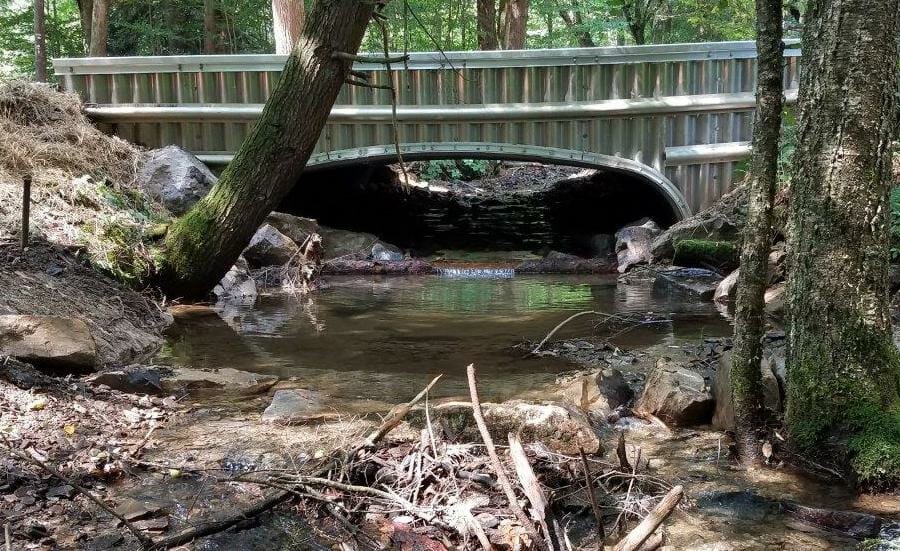
This past year, 10 culvert replacement projects were completed, reconnecting over 12 miles of aquatic habitat.
Additionally, TU field staff inventoried over three hundred stream crossings to determine if they posed a barrier to aquatic organism passage. This information will be used to prioritize and develop future projects.
In 2018, TU increased capacity to provide technical assistance to conservation districts, municipalities, and other groups through a new partnership with the Penn State Center for Dirt and Gravel Road Studies.
This partnership allowed the addition of new staff dedicated to providing training, design recommendations, and construction oversight services for stream crossing replacements funded through the Pennsylvania Dirt Gravel and Low Volume Roads Program. During this field season over 100 site visits were conducted providing technical assistance for projects in 35 counties.
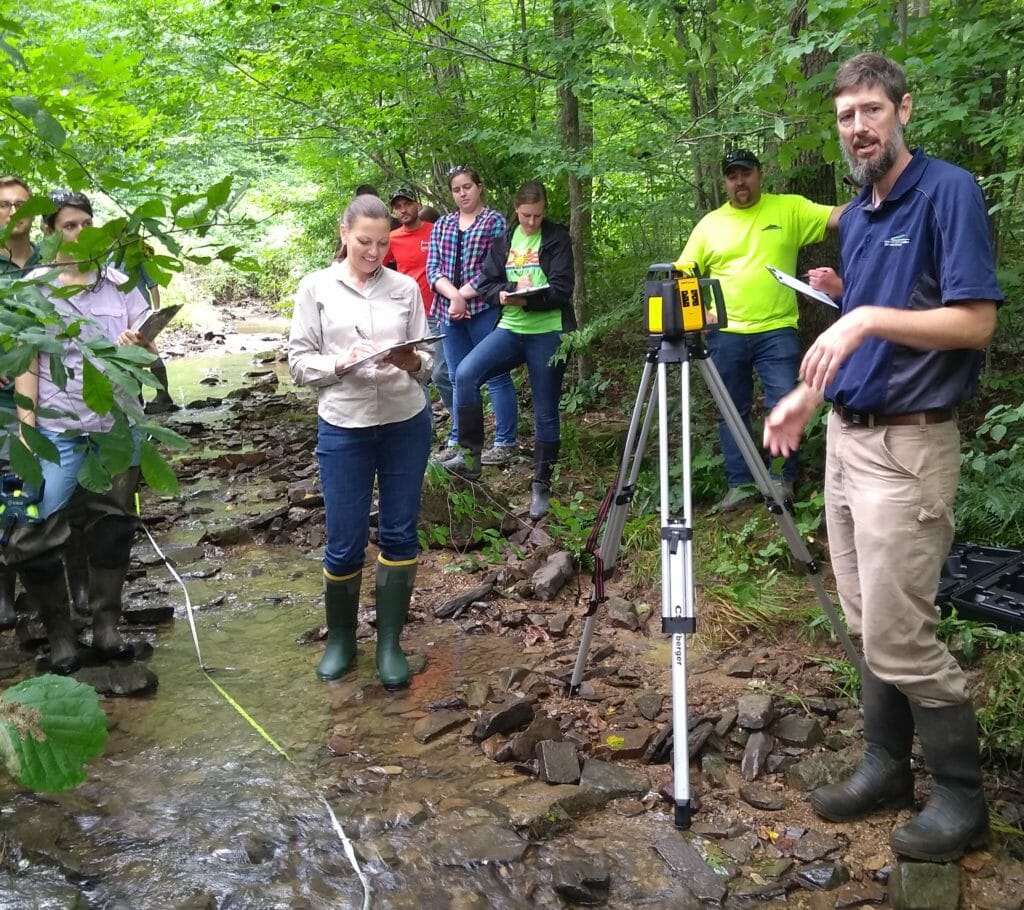
Since 2005, TU has been helping conservation districts, watershed associations, TU chapters, and many others who work on the cleanup of abandoned mine drainage (AMD) across the state through the TU AMD Technical Assistance Program.
To date, more than 165 projects have been completed, including 12 during 2018. A significant number of these projects eventually turn into full-scale treatment systems or rehabilitation of existing treatment systems, while other projects provide water quality and biological data needed to develop new restoration plans or monitor recovery from AMD treatment.
In 2018 TU launched a new program, the Nonpoint Source Technical Assistance Program, which focuses on reducing sediment and nutrients to the Chesapeake Bay.
This program provides a variety of planning, design, permit, and construction oversight services for watershed organizations, conservation districts, municipalities, TU chapters, private landowners and other groups implementing conservation projects.
Since its formal launch late this year, TU has provided technical assistance for 15 project sites across 12 counties. When completed these projects will have the potential to reduce nearly 2,000 tons of sediment and associated nutrients from the Chesapeake Bay.
TU also continued its partnership with the Pennsylvania Fish and Boat Commision (PFBC) through the Unassessed Waters Initiative.
TU has been an active partner in the program since 2011 and has assessed 876 streams. In 2018, TU assessed 117 streams in the Delaware and Susquehanna River watersheds and documented trout in 56 of those streams. These streams could potentially be added to PFBC’s wild trout list and afforded additional protection from the state.
Field data collection within the West Branch Susquehanna River watershed was also completed for the “West Branch Susquehanna River Benchmark Recovery II” project.
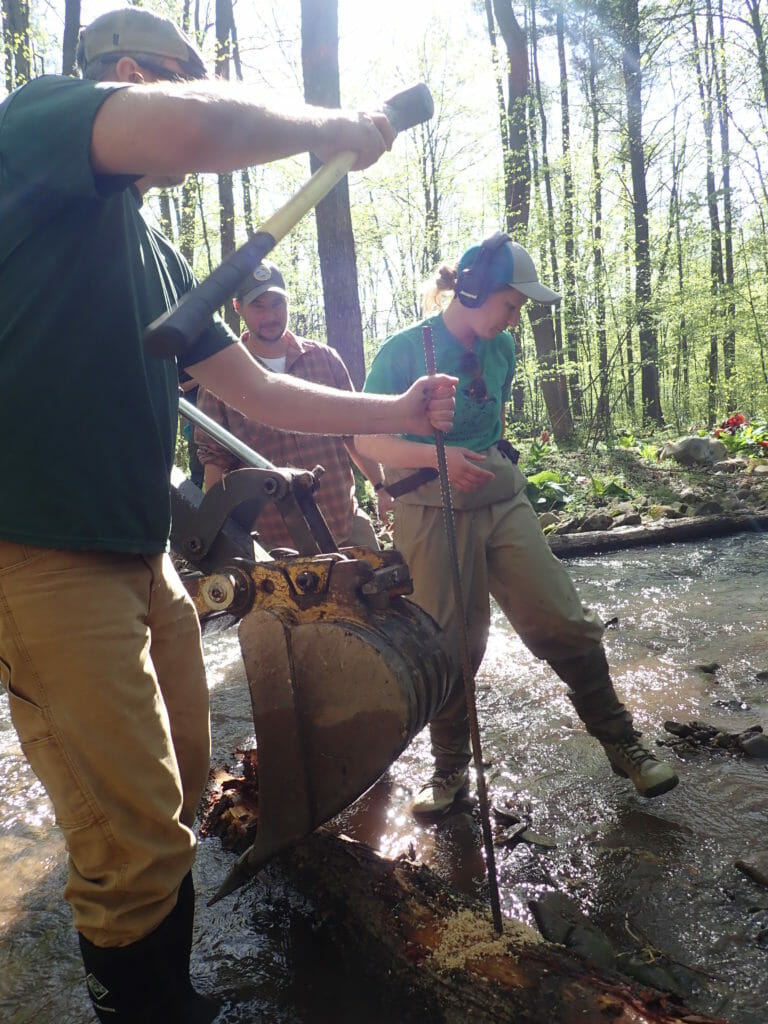
The goal of the project is to quantify the chemical and biological recovery of the river and its tributaries that have been impacted by abandoned mine drainage. Over 100 sites were surveyed for habitat quality, water chemistry, and benthic macroinvertebrate communities. The project is slated for completion in December of this year.
Trout Unlimited sincerely thanks all our partners, funders, and other collaborators for their support. Without these strong and effective partnerships none of this would be possible.
PA Coldwater Habitat Team: Amy Wolfe, Northeast Coldwater Habitat Program Director ; Shawn Rummel, PhD, Northeast Coldwater Habitat Program Lead Science Advisor; Rachel Kester, Project Coordinator; Jake Tomlinson, Habitat Program Manager; Phil Thomas, Stream Restoration Specialist; Shaun McAdams, Stream Restoration Specialist; Kathleen Lavelle, Field Coordinator; Allison Lutz, Field Technician


